
Soil impact area – Sustainable agriculture
Share
When we think of space, we usually think of built-up areas. Our homes, office buildings, or perhaps even public spaces like a marketplace or train station. But beneath all these built-up areas is one thing: the ground. I imagine it like a puzzle: piece by piece, the open land is distributed and pieced together. With concrete, asphalt, and even agriculture. The latter at least leaves the land open and uses the earth without building on it.
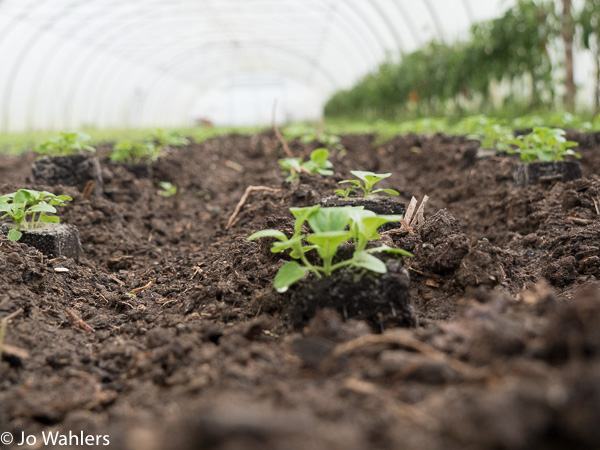

But is that really true? I went to a field to talk to Jochen Voigt about soil. Jochen founded an organic vegetable farm with direct marketing in Syke-Gessel back in 1989, which was still a rarity at the time. In 2001, he partnered with Heinz-Jürgen Michel, who had founded the organic delivery box service "frischeKiste" in Oldenburg, which they then relocated to Syke. They now have around 33 employees and deliver around 1,300 boxes weekly to customers and numerous schools in the greater Bremen area.
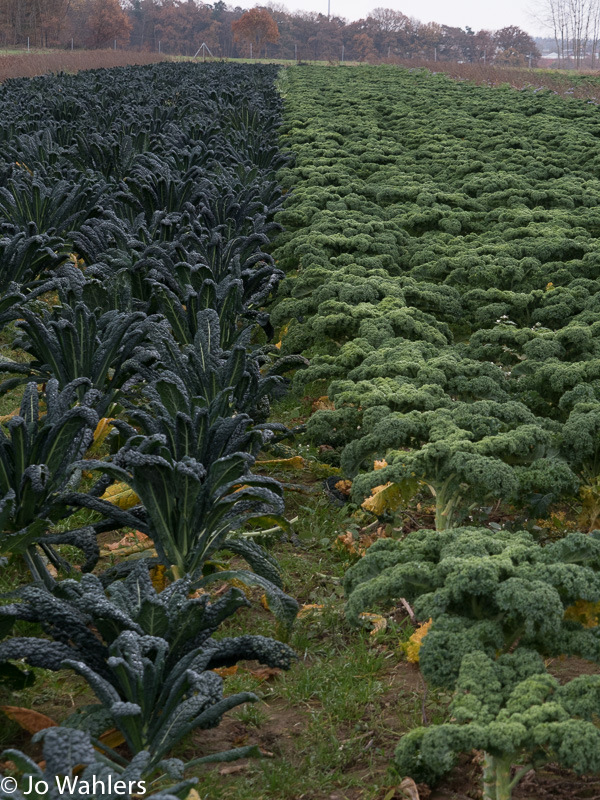

It's important to Jochen that a portion of the vegetables they sell are homegrown. In 2016, they leased a 5.85-hectare plot of land in Syke-Leerßen. After a two-year conversion period from conventional to organic farming, they now use it for vegetable cultivation. This means they can now offer approximately 10% of their vegetables from their own cultivation.
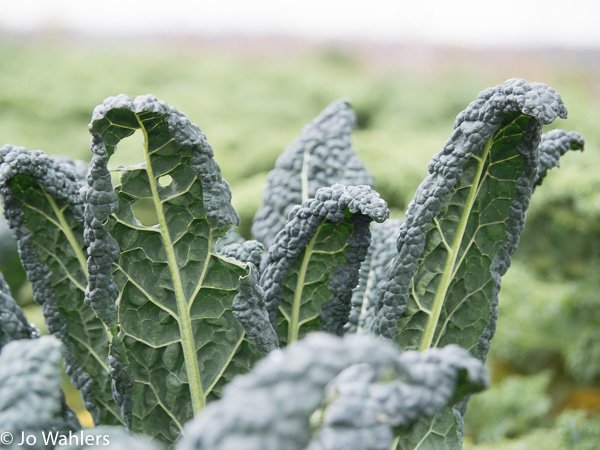

We're standing in this field now. It's cold as we enter the fenced-in area. The first thing that surprises me is the unusual layout of the fields. Instead of the usual large, uniform area, they're working with long, narrow strips where different vegetables are planted side by side. The crop rotation then gradually moves from right to left. Clover is planted in between to fertilize the soil, binding nitrogen from the air into the soil. Most of it has already been harvested at the onset of winter, but in one field there are rows of stately kale plants. It looks like a forest for dwarfs. Next to the kale is a strip of faded flowers. Jochen explains: This is a flowering strip with the so-called Hanover mixture. It's supposed to help against a fly that can attack kale. The Bioland association has experienced advisors who always have good tips and new ideas. And they also exchange ideas among colleagues, says Jochen. Organic farming is also a matter of trial and error, and involves a lot of experimentation. This includes working with the soil, not against it. This requires a great deal of knowledge and sensitivity, as the soil conditions can be completely different just a few plots away.
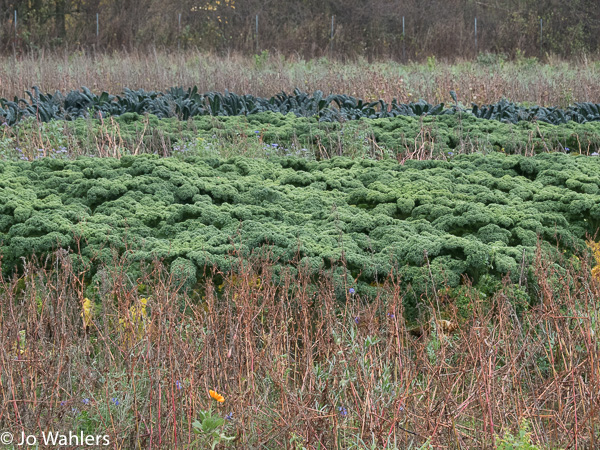

I see this later when we drive to another piece of land belonging to the FrischeKiste: Up above, near the vegetable patch, there was clayey soil, and down here there is suddenly loose, dark earth.

Even though he and his two colleagues (one of whom is his daughter) with whom he is responsible for the cultivation are still in the midst of expanding their own cultivation, Jochen is already a step further in his thinking. "I've been thinking a lot about the history and basic principles of agriculture lately, and from my point of view, monocultures no longer make sense and actually never did." A diverse crop with different fruits, shrubs, and trees on one area produces higher overall yields, even if the yields of the individual crops are lower. It is more stable, more resilient, and much more attractive than a monoculture of, for example, grain or potatoes. The positive effects of symbiosis can be put to good use.
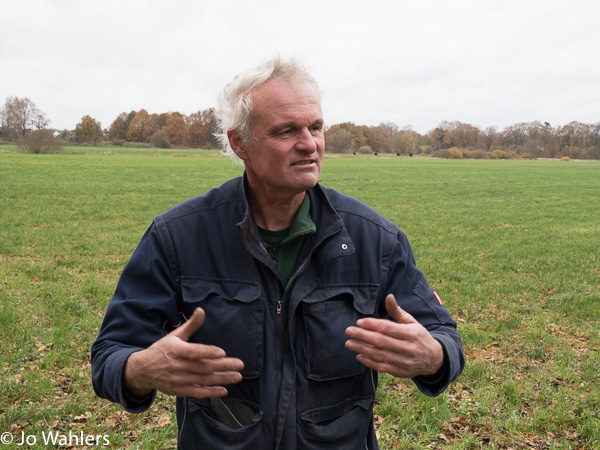

I'm surprised, because after all, I don't know any other form of agriculture than vast fields of wheat, corn, or cabbage. What could be the alternative, I ask him? Jochen Voigt: "I envision a kind of forest garden—an agroforestry system. This means that trees, rows of trees, shrubs, and perennials will be planted first. In between, we can continue farming as usual. After a few years, the additional yields will begin, such as fruit, berries, nuts, and others. We could bring these to the city via the frischeKISTE (fresh box), as we have done so far. Or we could try to develop a system of solidarity agriculture in which people can participate and harvest what they need themselves. Of course, surpluses could also be given to wholesalers. But this must always be accompanied by great appreciation and fair prices. Regions far from urban areas must continue to supply people in cities through a trading system in the future. The task is to feed everyone while simultaneously improving the ecological condition of the landscape and reducing the depletion of fossil resources. The water supply must be stabilized, and waste must be reduced and safely recycled. The land should then also serve as a recreational and leisure activity for city dwellers."
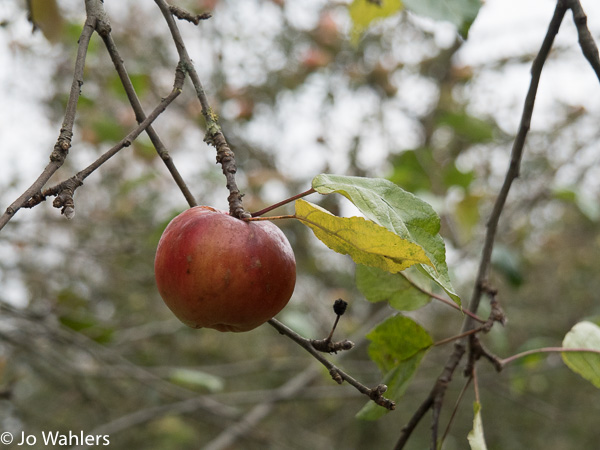
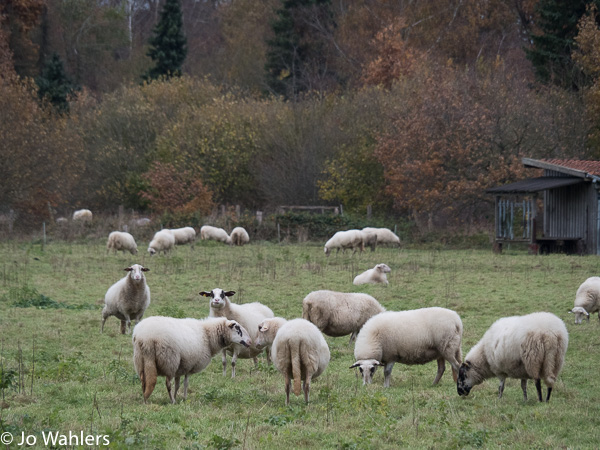

We're currently walking toward the sheep grazing peacefully between a stream and trees. A forest garden sounds beautiful, I think. However, looking at our current consumer behavior, it's clear to me that there's a lot of work to be done before we make such a radical change in our approach to agriculture. As is so often the case, we as consumers also play a significant role in this process. This includes rethinking comfortable habits, such as fruit and vegetables, which should be available regardless of the season, or all the convenience foods.
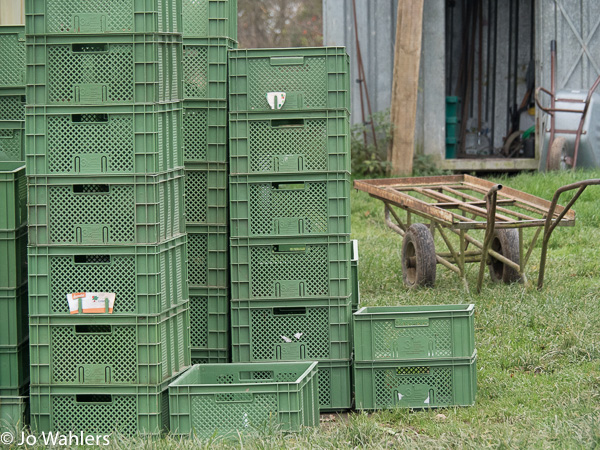


In addition, currently only 9.6% of the total agricultural land is farmed organically (source: Federal Environment Agency https://www.umweltbundesamt.de/daten/land-forstwirtschaft/oekologischer-landbau#okolandbau-in-deutschland ). First, a further rethinking of this approach is needed, and farms must be enabled to convert to organic farming. Gaining widespread acceptance, then thinking a few steps further and focusing on mixed farming, will certainly require a great deal of persuasion and a necessary change in all of our mindsets.
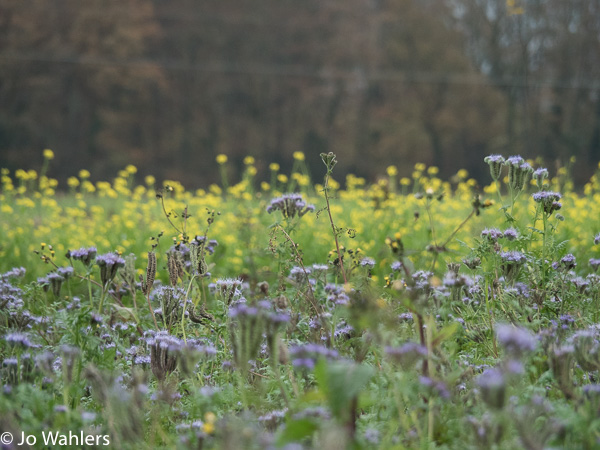

This makes it all the more important to have people like Jochen who question systems and have the courage to explore new paths. His enthusiasm for nature and the soil is certainly contagious:
"It's about the plants and the care of the areas; nature takes care of the rest all by itself. When it comes to soil, it's also important to me to understand it not just as a surface, but as a three-dimensional space with great depth, and to at least begin to understand the infinitely complex systems and communities of life that operate within it."

Jochen Voigt welcomes questions and discussion contributions to his email address jochen@frischekiste.de
The photographer
These wonderfully atmospheric photos were taken by my friend and colleague Jo Wahlers, with whom I have already organized several creative workshops and exhibitions. Jo is a doctor and artist. More about her work can be found at www.jowahlers.de .
